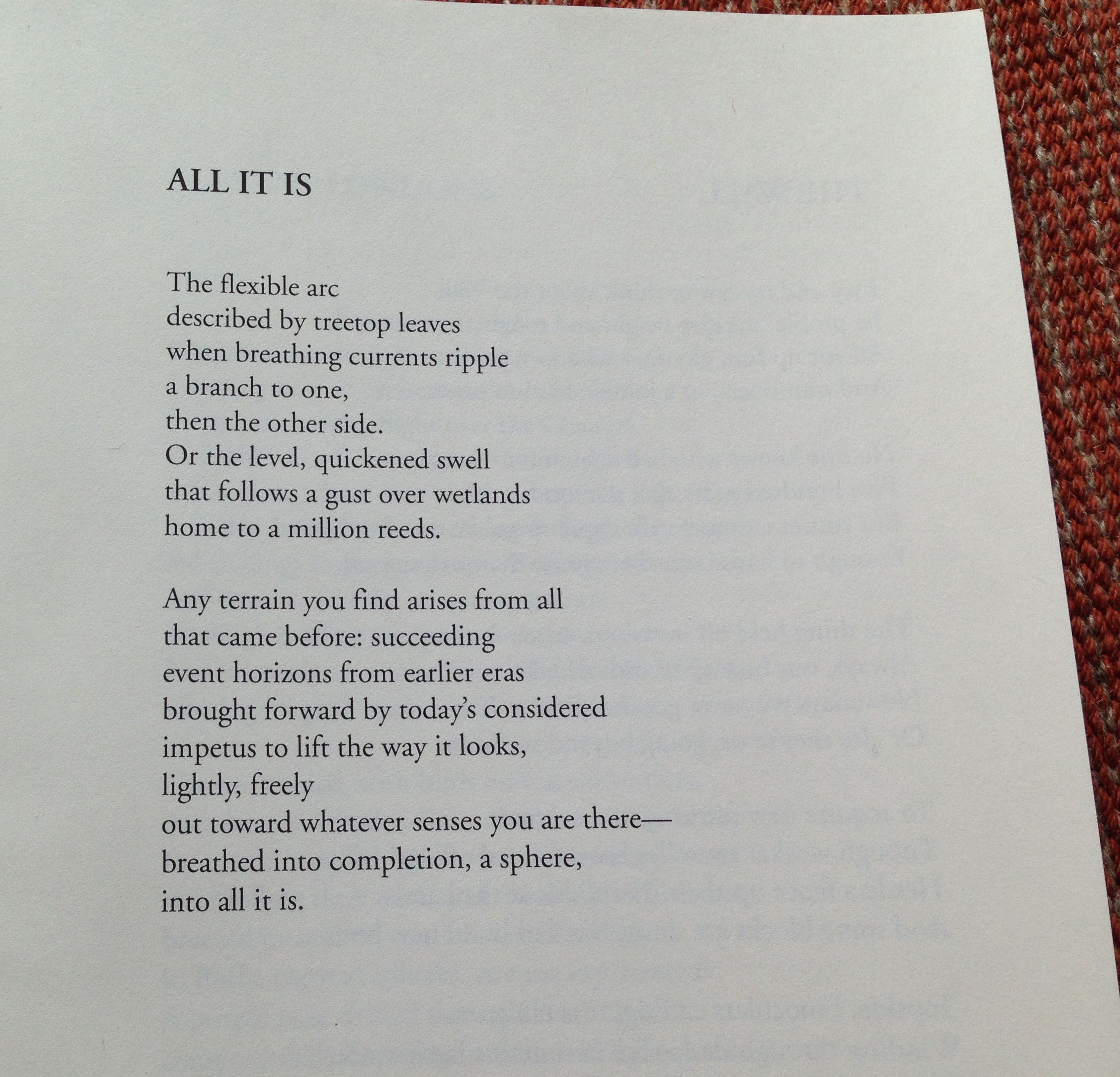…
If you like a poem, type it out and memorize it and you will get to know it better. Here is a poem by Alfred Corn called All It Is, and that is what it is about, all it is. It is one of those poems that I think describes the indescribable. From a recent book of poems called Unions, his eleventh. Hope you enjoy my reading of it.
…
…
Sometimes you read a poem and like it so much that you go back and read it again. Our working memory, its every second, can only take in about three or four things that we see at once; and what we notice we usually forget; otherwise our brains would be inundated with time’s images. On first reading the second line in All It Is, I read leaves as if it were the verb, third person, and had arc for its subject, but leaves here is a noun, and treetop is the adjective describing it. So it wasn’t the flexible arc that leaves although that could certainly have been.
In the first stanza there are no independent verbs; no complete sentence; we are left hanging. We do have the verb ripple with its subject breathing currents, but they are in a dependent clause dependent on the conjunction when. And there is follows in the second sentence, but it is dependent on that. So even when the first stanza has finished, it keeps continuing in pursuit of a complete sentence.
There are words that could be verbs that are nouns and adjectives, eleven of them at my count: arc, described, leaves, breathing, branch, side, level, quickened, swell, gust, home. And currents in the first stanza is a noun that has qualities of movement too. Like any landscape, when we look, there’s more going on than we can see at once. Like life itself everything’s happening. Good poetry is ephemeral. All It Is describes the indescribable. And it is you.
…
All It Is
The flexible arc
described by treetop leaves
when breathing currents ripple
a branch to one,
then the other side.
Or the level, quickened swell
that follows a gust over wetlands
home to a million reeds.
Any terrain you find arises from all
that came before: succeeding
event horizons from earlier eras
brought forward by today’s considered
impetus to lift the way it looks,
lightly, freely
out toward whatever senses you are there—
breathed into completion, a sphere,
into all it is.
…
If you happen to see Unions in a bookstore on a bookshelf, and perhaps aren’t flush enough to buy it, you might want to take a closer look at the second stanza of All It Is for yourself. And you might easily browse the second poem, The Wall, or the longer poem that follows, Eleven Londons, an example of history captured and explained in verse, something this poet does well, honestly written so you get a feel for the place and the times, personal and not yet personal. You won’t regret the time spent.
…
 Alfred Corn
Alfred Corn
…
Unions is published by Barrow Street Press. Check them out:
http://barrowstreet.org/press/
…
